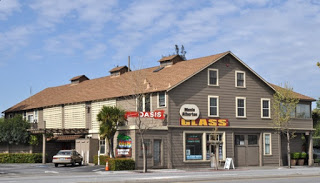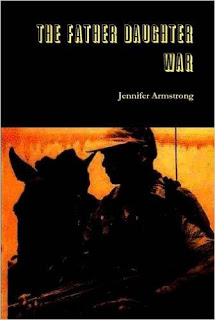Wednesday, November 16, 2016
Monday, November 7, 2016
Saturday, July 30, 2016
Wobbly times number 198
Stammtisch at the Oasis
Clockwise 'round the short bar
sit half a dozen guys
on Friday night
four drinking beer
two drinking soda
the scene
becoming progressively chaotic
as more people file in
to the Oasis
to quench their cravings
after another
week of it
whatever their particular
IT is:
A homeless black, the rest white
a Berkeley Prof, an Intel millionaire
an unemployed printer
a retired librarian in his 70s and
a minor author--an ex ops-man
from that same library
a university library
in a university town
the next town down from the Oasis
where Steinbeck set a part of EAST OF EDEN
The conversation swirls above
the cacophony of
autre voix
It is nine in the evening
loose tongues
speak volumes of
forgettable prose about
sports, long distance driving routes--
U.S. 6 is the longest--movies, stars, races
and friends departed--most with liver failure
And of a sudden
it's time to turn in
inwards again
ever inwards
and bid good fellows fond adieu
as the week begins anew
and the wheel turns
on its screw
turning higher
ever higher
to be sure
but not by much
Wednesday, June 15, 2016
Wobbly times number 197
 Writings of Daniel Deleon: A Collection of Essays by One of the Founders of American Revolutionary Socialism by Daniel de Leon
Writings of Daniel Deleon: A Collection of Essays by One of the Founders of American Revolutionary Socialism by Daniel de LeonMy rating: 5 of 5 stars
The best introduction to socialism you can get. DeLeon deals with reformist tactics, revolutionary unionism, the abolition of wage labour, the change necessary in the mode of production and the establishment of common ownership of the collective product of labour...aka socialism. From here, go to "Value, Price and Profit" and then to "CAPITAL" v.1-v.4 THEORIES OF SURPLUS VALUE.
The reader can safely disregard DeLeon's bitter rejection of the post-1908 IWW. In this reader's opinion the Preamble to the Constitution of the IWW actually improved after 1908 and was in no way an endorsement of anti-political sects.
View all my reviews
Thursday, April 14, 2016
Wobbly times number 196
Once more, I shall attempt to clear up some confusion with regard to the conceptual framework within which Marx, Engels and indeed, many communists were working in the 19th century. To accomplish this task, I shall refer the reader to what Engels wrote about their interchangeable use of the terms socialism and communism i.e. why he and Marx sometimes used the term "socialist" and why "communist" in their writings over the years of their lives. Both terms meant the same thing to them, however why they preferred communist identity at the beginning of their studies and organization whilst socialist at the end remains well stated in Engels’s Preface to the English edition of 1888 as well as his Preface to the German edition of 1890 of the Communist Manifesto:
“Nevertheless, when it appeared, we could not have called it a socialist manifesto. In 1847, two kinds of people were considered socialists. On the one hand were the adherents of the various utopian systems, notably the Owenites in England and the Fourierists in France, both of whom, at that date, had already dwindled to mere sects gradually dying out. On the other, the manifold types of social quacks who wanted to eliminate social abuses through their various universal panaceas and all kinds of patch-work, without hurting capital and profit in the least. In both cases, people who stood outside the labour movement and who looked for support rather to the “educated” classes. The section of the working class, however, which demanded a radical reconstruction of society, convinced that mere political revolutions were not enough, then called itself Communist. It was still a rough-hewn, only instinctive and frequently somewhat crude communism. Yet, it was powerful enough to bring into being two systems of utopian communism — in France, the “Icarian” communists of Cabet, and in Germany that of Weitling. Socialism in 1847 signified a bourgeois movement, communism a working-class movement. Socialism was, on the Continent at least, quite respectable, whereas communism was the very opposite. And since we were very decidedly of the opinion as early as then that “the emancipation of the workers must be the task of the working class itself,” [from the General Rules of the International] we could have no hesitation as to which of the two names we should choose. Nor has it ever occurred to us to repudiate it.”
Neither Marx nor Engels ever used the term "socialist State". Socialism yes. But socialism for Marx and Engels meant a classless democracy and the political State was always meant to describe class ruled government. Included in this description would be a workers' State--the now infamously used term, "dictatorship of the proletariat". A workers' State would not be socialism. It would be class rule by the overwhelming majority, in reality, a proletarian democracy. Marx and Engels used the word State to indicate the governing structure of class rule whether the ruling class was the slave owning class, the land owning class of feudalism or the modern day capitalist class. All political States were and would be class ruled. With the establishment of socialism by the working class, the State would die out because the social relation of Capital would no longer exist, common ownership and democratic control over the collective product of labour would necessitate the abolition of the wage system, commodity production and with it Capital as a social relation of political power.
A political State controlled by workers would include other classes. For instance, if the workers as a class controlled the State, they could get legislation passed which would tax the wealth of the capitalists and landlords in order to use that revenue to benefit people who had to work for wages in order to make a living. An example might be something like free healthcare paid for by the government using the aforementioned revenue. A proletarian democracy would be run by the workers in the class interests of the useful producers. The Paris Commune of 1871 was an example of a proletarian democracy or "dictatorship of the proletariat".
A worker controlled democratic republic is what Marx and Engels are proposing in section II of the COMMUNIST MANIFESTO. The reforms listed at the end of this section are general proposals which a workers' State might implement in 1848:
"Of course, in the beginning, this cannot be effected except by means of despotic inroads on the rights of property, and on the conditions of bourgeois production; by means of measures, therefore, which appear economically insufficient and untenable, but which, in the course of the movement, outstrip themselves, necessitate further inroads upon the old social order, and are unavoidable as a means of entirely revolutionising the mode of production.
"These measures will, of course, be different in different countries.
"Nevertheless, in most advanced countries, the following will be pretty generally applicable.
1. Abolition of property in land and application of all rents of land to public purposes.
2. A heavy progressive or graduated income tax.
3. Abolition of all rights of inheritance.
4. Confiscation of the property of all emigrants and rebels.
5. Centralisation of credit in the hands of the state, by means of a national bank with State capital and an exclusive monopoly.
6. Centralisation of the means of communication and transport in the hands of the State.
7. Extension of factories and instruments of production owned by the State; the bringing into cultivation of waste-lands, and the improvement of the soil generally in accordance with a common plan.
8. Equal liability of all to work. Establishment of industrial armies, especially for agriculture.
9. Combination of agriculture with manufacturing industries; gradual abolition of all the distinction between town and country by a more equable distribution of the populace over the country.
10. Free education for all children in public schools. Abolition of children’s factory labour in its present form. Combination of education with industrial production, &c, &c."
Further, it should be noted that even after the Paris Commune of 1871, Marx and Engels would speak in terms which many think they renounced after that workers' revolt. On September 8, 1872 more than a year after the Paris Commune was drowned in the blood of the proletariat, Marx said:
"But we have not asserted that the ways to achieve that goal are everywhere the same.
"You know that the institutions, mores, and traditions of various countries must be taken into consideration, and we do not deny that there are countries -- such as America, England, and if I were more familiar with your institutions, I would perhaps also add Holland -- where the workers can attain their goal by peaceful means. This being the case, we must also recognize the fact that in most countries on the Continent the lever of our revolution must be force; it is force to which we must some day appeal in order to erect the rule of labor."
As for the so-called "dictatorship of the proletariat", it was never Marx's or Engels' intention that it would be Lenin's dictatorship of a party. In fact, that's just what they were arguing with the anarchists about in terms of the interpretation of the concept. If there has been any doubt as to whether the USSR was a dictatorship of the party, as opposed to being a proletarian democracy after the 10th Party Congress of the CPSU (B) in 1921, then I would suggest reading the well documented work by Maurice Brinton titled, The Bolsheviks and Workers' Control .
The point of writing all this is to get people who "know" to understand what Marx and Engels actually wrote about the question of communism. Without reading what Marx and Engels actually wrote about socialism or communism, if you will, many, if not most people calling themselves "Marxists" have failed to grasp that they might be taking off from a conceptual base which does not correspond to the conceptual base Marx and Engels were taking off from. So, to reiterate:
1. A workers' State is controlled democratically by the workers. It is not common ownership and democratic control of the collective product of labour after the wage system has been abolished i.e. it is not the lower stage of communism/socialism. It is not a classless democracy. It is, like all political States, the dictatorship of a class, in this case, the still existing working class. Commodity production for sale can still exist in a such a proletarian democracy. A wage system can still exist. Under the wage system, labour power is a commodity.
2. Communism or socialism, if you will, signals a change in the mode of producing wealth from the capitalist mode which depends on wage labour and commodity production to the communist mode in which a free, classless association of producers democratically decide how to distribute the collective product of their labour. Socialism/communism means that commodity production for sale with a view to profit no longer exists, whether in its initial stages or in its more advanced stage. You can begin to see the outlines of this in various writings of Marx and Engels. Wobbly times number 88 contains some quoted examples.
"The emancipation of the working classes must be conquered by the working classes themselves...the struggle for the emancipation of the working classes means not a struggle for class privileges and monopolies, but for equal rights and duties, and the abolition of all class rule." - Marx, 1864
Thursday, April 7, 2016
Wobbly times number 195
Gort! Klaatu barada nikto.
Looking for the POTUS. S/he'll help us out of this climate mess we're in.
Oh no! It's Gort come to punish the human race for destroying the ecosphere! No Gort! It is the capitalist class and their system of wage slavery which is leading to the Great Collapse. Don't destroy us! Destroy the wage system!
Labels:
Barada,
climate change,
Gort,
Klaatu,
Nikto,
speculative fiction
Saturday, February 27, 2016
Wobbly times number 194
“It is as clear to me now that was upon arrival as an immigrant that there is no link anywhere to be found between the child who I was in Zimbabwe and the adult I was forced to become upon immigration. I had learn to speak again, from scratch, and when I did it came of as academic jargon. I had resorted to teaching myself from book, the only companions who were tolerant enough to bide with me until I’d figured enough things out. I still had the choking hesitation in my voice, of the strangled child, but I was on fragile steps, little mermaid walking on a ground of swords steps, in order to assert myself and my perspectives.
“Donald Meltzer, the psychoanalyst, says that those who murder their inner child develop a grave capacity for brutality against themselves and others. Mine wasn’t dead yet, and was doing her best to stay alive, but all was based on precepts from a different cultural paradigm, which I could not have dwelt in any more, due to my growing need for knowledge, even if a part of me had wanted to remain that innocent--to retain the innocence of a child indefinitely.”
Give it a go. THE FATHER DAUGHTER WAR is very well written. Have patience. Keep reading. At first, her father’s voice adds the adult to the child’s first person memory. Reality is captured through an ever maturing scamper through the memories of one, Jennifer Frances Armstrong. Grieving for a lost home where nature was everywhere and taken for granted. Armstrong is honestly pulling you back to a different sense of time and place. Immersion in THE FATHER DAUGHTER WAR will help cure some of your uncritically examined Cold War narratives.
From the impressionistic imagery of first childhood memory to the growing consciousness of a girl becoming teen, you can feel like you’ve been there, in a certain part of Africa, in a certain set of circumstances from a certain individual’s maturing memories, reflections and experience.
Remember what it was like to be 12, a child on the edge of puberty?
What did you know about the world then?
What amazing discoveries were you making every day of your life?
Well, at least to you, they appeared as “amazing discoveries”.
Only this was Africa, specifically a Rhodesian child’s life. Things were different from the way you remembered them at 12 or 2 or 4 or 16, unless you lived in Borrowdale before 1984. Still, there is a connection to be had in the sheer wonderment of the adventure life was when we were children flowing through THE FATHER DAUGHTER WAR.
To be sure, there were the differences.
Want to go on vacation? Better catch the convoy or risk being shot in an ambush along the way. Everyday life in a zone of civil war. You read about them nowadays--personal stories of everyday life in Syria, Iraq and Yemen. And then, the trek out to the new land. Culture clash is part of the immigration story. For one thing, nature changes. Fauna and flora in the outdoors are much more under control in the Perthian urban setting. Nature seems drier, hotter and much less fecund.
This has its effects within the culture. There are other matters, many other matters covered in THE FATHER DAUGHTER WAR. You’ll see.
Ever wanted to hug your secret 6th grade heart throb? Of course you did. And so, when the opportunity arises at a girlfriend’s birthday party, you grab Paul kind of tightly. Jennifer is coming of age. But the convoy and Paul come years after she has eaten African soil, liked it and been punished for it by having her mouth washed out with soap by her mother. It’s also after being told by her elementary school teacher that playing with boys’ toys was wrong. Bricks are not for girls! But that happens after soil.
Give it go now. You’ll be glad you did.
Labels:
africa,
Australia,
book review,
Jennifer Armstrong,
memoire,
Rhodesia,
Zimbabwe
Subscribe to:
Posts (Atom)





